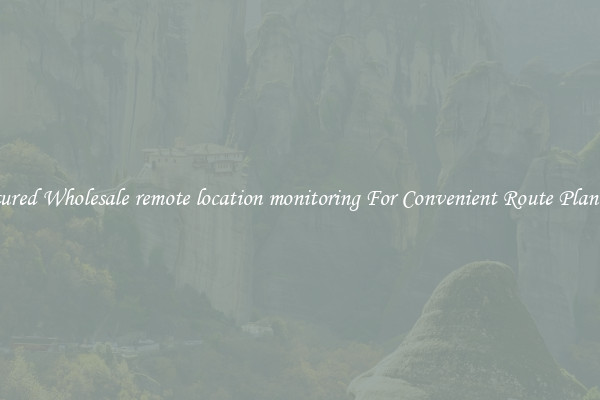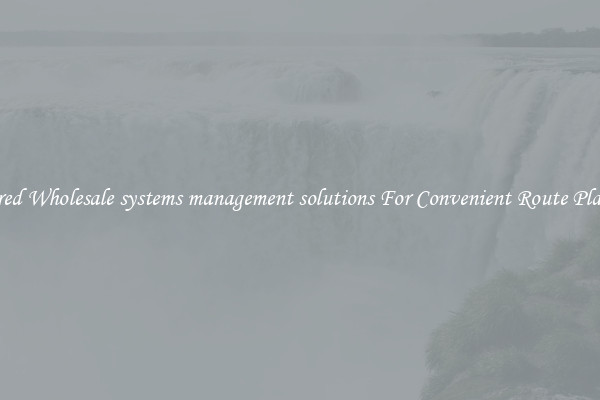Featured Wholesale remote location monitoring For Convenient Route Planning
In today's fast-paced world, businesses rely heavily on efficient and convenient route planning to ensure the smooth operation of their supply chains. One essential tool that is gaining popularity among wholesalers is remote location monitoring. This innovative feature allows wholesalers to monitor their remote locations in real-time, providing invaluable data for more convenient and effective route planning.

Remote location monitoring involves the use of advanced GPS tracking technology and sensors to monitor the movement and conditions of goods throughout the supply chain. It provides wholesalers with real-time data on factors such as location, temperature, humidity, and even shock or vibration levels. This data is collected through the use of small devices or sensors attached to the goods, which transmit information to a centralized monitoring system.
One of the key benefits of remote location monitoring for wholesalers is the ability to track the exact location of goods at any given time. With this feature, businesses can optimize their route planning by choosing the most efficient and convenient routes for their deliveries. They can identify any potential bottlenecks or traffic congestions and proactively plan an alternative route to ensure timely deliveries.
Additionally, remote location monitoring allows wholesalers to monitor the conditions in which their goods are being transported. Temperature-sensitive products such as food, pharmaceuticals, or chemicals require specific environmental conditions to maintain their quality and safety. With remote monitoring, wholesalers can ensure that their goods are stored and transported within the required temperature range, minimizing the risk of spoilage or damage.
Moreover, by monitoring shock or vibration levels, wholesalers can identify potential risks during transportation, such as rough handling or improper loading. This information enables them to take preventive measures to minimize the risk of damage to their goods, ultimately reducing the expenses associated with product losses and returns.
Another advantage of remote location monitoring is its ability to provide wholesalers with valuable data for analyzing and optimizing their supply chain operations. By collecting and analyzing data on factors such as transportation times, delivery delays, or quality issues, wholesalers can identify areas for improvement and implement strategies to enhance their overall efficiency and customer satisfaction.
In conclusion, remote location monitoring is revolutionizing the way wholesalers plan their routes, ensuring convenience, efficiency, and product integrity. Through real-time tracking and monitoring, wholesalers can optimize their route planning, manage temperature-sensitive products, minimize the risk of damage, and improve overall supply chain operations. In an increasingly competitive market, the integration of remote location monitoring is becoming an essential tool for wholesalers looking to stay ahead of the curve and provide reliable and efficient service to their customers.

View details

View details

View details

View details








